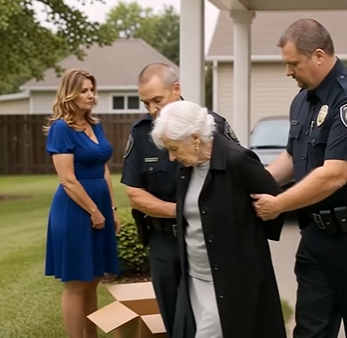For years, my mother-in-law had been the quiet strength in our family. She was gentle, soft-spoken, and endlessly kind.
Despite her illness, she always found the energy to read to our children, bake cookies, and offer words of wisdom that felt timeless.
To me, she was the perfect example of dignity in aging — a woman who gave without expecting anything in return. So, when a police car stopped in front of our house one morning, I thought it must have been a mistake or a neighbor’s problem, not ours.
Two officers stepped out and asked to speak with her by name. My heart began to race as I watched her walk to the door, her hands trembling slightly. The officers spoke calmly, explaining that they needed to ask questions about an old matter from many years ago. My husband and I were speechless. She had lived such a peaceful life, how could this be? As they escorted her away, she turned to me and whispered, “It’s not what it seems.” Those words echoed in my mind the entire day.
At the station, we finally learned the truth — decades ago, she had taken the blame for a workplace mistake that wasn’t hers, to protect a young colleague who was a single mother and would have lost everything. The case had resurfaced due to a routine review of old files, and the police were simply verifying her statement. When the investigation ended, she was cleared, but by then, I saw her differently — not as a frail pensioner, but as a woman who had once carried the weight of quiet courage.
When she returned home, I hugged her tightly and whispered, “You should have told us.” She smiled softly and said, “Some things are better carried in silence if they spare others pain.” That day, I learned that true goodness doesn’t always shout for recognition — sometimes, it hides behind humility and sacrifice. My mother-in-law was no longer just an “ordinary woman” to me; she was a reminder that real strength often wears the calmest face.
